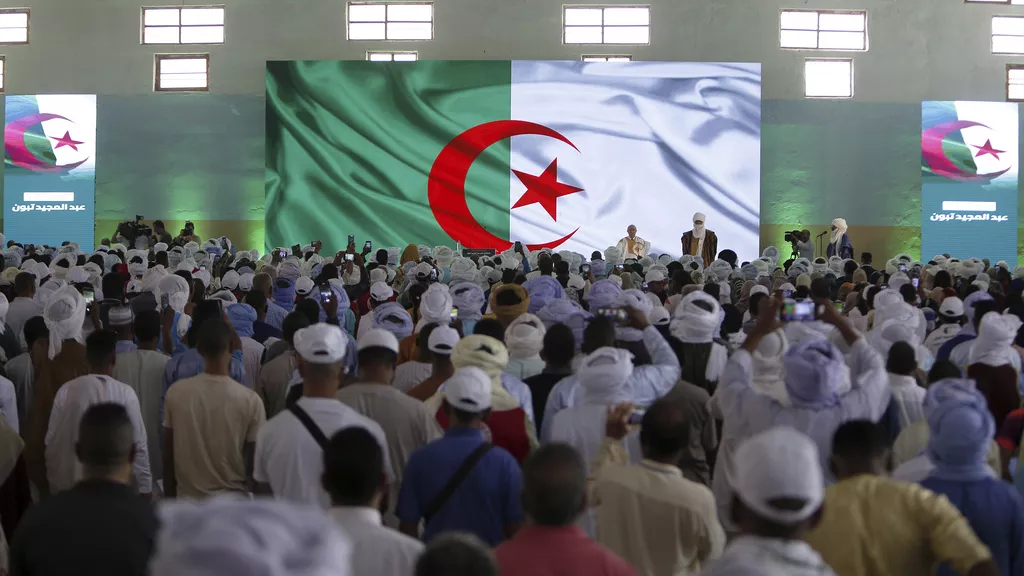Billboards are strikingly empty. There are a few campaign posters. And aside from public television broadcasts showing candidates travelling the country, there are few signs of enthusiasm heading into Algeria’s presidential election this weekend.
Prospective voters in the gas-rich North African nation say they are more concerned about prolonged inflation’s effects on the spiking prices of school supplies, potatoes and coffee. Military-backed President Abdelmadjid Tebboune, 78, appears poised to breeze to a second term.
“How can you expect Algerians to have any interest in the elections when life is hell daily?” asked middle school principal Noureddine Benchikh, who told The Associated Press he wasn’t really in the mood for politics.
From Hope to Disillusionment
The malaise is a far cry from the hopes of April 2019, when pro-democracy activists with the Hirak movement called for broad, structural changes to Algeria’s military-dominated political system after then-octogenarian President Abdelaziz Bouteflika resigned under pressure.
Political apathy has reasserted itself among many prospective voters, while the country’s fledgling opposition alleges that political elites who run the country have again entrenched themselves in power.
The country’s election authority has approved only two candidates to challenge Tebboune: 57-year-old Islamist Abdelaali Hassani Cherif and 41-year-old socialist Youcef Aouchiche, a former journalist running for a large centre-left opposition party.
“It seems that what matters most to ‘le pouvoir’ in this election is voter turnout to lend legitimacy to their candidate, whose victory is a foregone conclusion,” said Algerian sociologist Mohamed Hennad, employing a term frequently used to describe the military-backed political establishment.
Candidates Urge Citizens to Vote
All three candidates have been urging citizens to vote. Of the country’s 45 million people, 23 million are registered. Candidates hope to improve on the 14% turnout of the 2019 elections, which protesters boycotted.
Activists in 2019 criticized authorities for hurriedly scheduling those elections that led to Tebboune, an establishment candidate seen as close to Algeria’s military, taking power.
Though Tebboune initially commended the Hirak movement’s weekly protests and released some imprisoned activists, Algeria later banned protests during the COVID-19 pandemic. Opposition figures and journalists continued to face imprisonment and judicial challenges.
Limited Political Debate
Though one candidate, Aouchiche, mentions human rights and political prisoners in campaign speeches, Algerians have an emerging feeling that the election has not sparked an earnest political debate.
Opposition figures have criticized this vote as a rubber-stamp exercise, and some political parties have boycotted it rather than field candidates.
Activists and others have reported repression of perceived dissent. Dozens of people were arrested last month on election fraud charges, and three potential candidates were placed under court supervision.
Targeting of Activists
Karim Tabbou, a leading figure in the Hirak movement who had been under judicial supervision for two years, was taken by police in an incident his wife called an “abduction.” They told him he was “forbidden to participate in any adversarial debate or to express his views on the elections or the political situation in general,” his lawyer said.
Fethi Ghares of the Democratic and Social Movement — a now-banned political party — was arrested last week with two colleagues and later released and placed under judicial supervision, his pro bono attorneys said. Charles and his colleagues face charges including publishing false information, hate speech and offending the president.
Social Media Gag Order
Lawyer Fetta Sadat said a judge had placed the group under an indefinite social media gag order while the charges were pending and told it to report to the court every 15 days.
Meanwhile, Algeria’s president has travelled the country delivering speeches to packed houses and spotlighting his efforts to raise wages and pension benefits and offer young people new opportunities such as interest-free loans for start-ups. Young people make up more than half the population.
“I’m a man of my word, I’ve kept my promises, and I promise to continue in the same vein,” Tebboune said last month.
